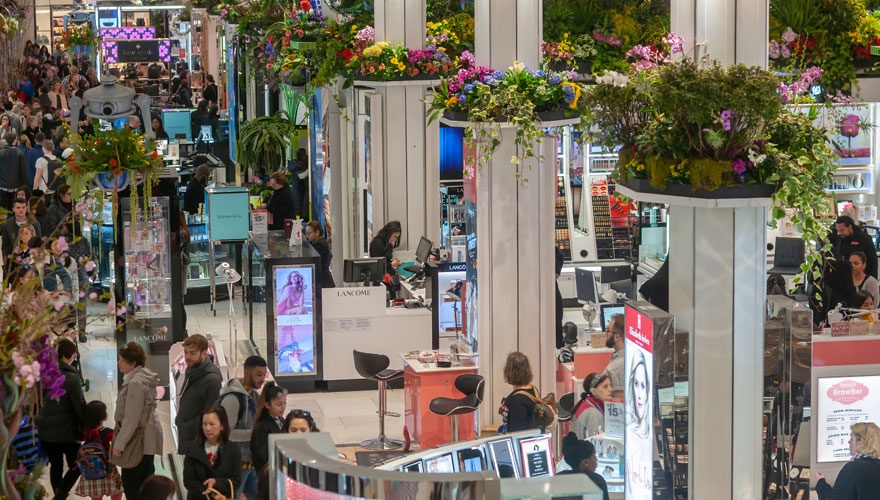While experiential retail differs plenty from Traditional Retail, it has the requirement of customers physically coming in and exploring the brand in common with it. It requires staff to offer a variety of services to the customer, bringing the most convenient buying experience to them within the premises of the brand’s workplace.
Experiential Retail stimulates a sense of dependence, trust and a personalized relation with the customer. A team of skilled workers guide and help the customer make the perfect choice for their requirement. It generates assurance of the product being sold and the customer feels content with their shopping experience.
Is Experiential Retail still relevant?
In a post-COVID world, Experiential Retail has lost its true importance; with customers availing the luxury of shopping from the comfort of their homes, along with other numerous advantages of online shopping, going back to Experiential Retail seems nothing less than a chore. It is losing its relevance rapidly. This is quite true that the virus has limited physical interaction among humans at an alarming rate. Social anxiety has played a massive role in taking people further away from the old tried and tested methods of shopping.
Despite the lucrative benefits of Online Retail, the fact remains that there is much to go wrong. One minor mistake, and everything comes tumbling down. Experiential Retail, while still expanding, is a secure option in the retail business. Although it is not time-bound, it works by certain rules and regulations that guarantee success and customer satisfaction.
Online Retail requires a lot to be put at stake; the risk factor cannot be overlooked.

The Risk factors involved in Online Retail
Competition
Big players set the benchmark in the online retail space for the aspiring companies to follow. In this extremely competitive environment it becomes excruciatingly difficult for a growing company to sustain. Although, there is a lot of opportunity for the emerging companies to grow and flourish, the fact that online retail giants like Amazon and eBay to name a couple will make it easy for any other player to survive.
Selling ideas
Experiential Retail has the advantage over Online Retail when selling ideas. Due to the personal shopping experience and the trust stimulated during physical shopping, it is easier for brands to sell their ideas, no matter how generic. Everything appears more attractive and appealing in person. The dullest of ideas can be sold with a little bit of experienced advertising. In contrast, if a seller has a unique selling idea in online retail, at least ten other online brands have the same idea. Each one seems to have a better selling point than the other; this makes marketing a massive challenge to emerging online companies.
Financial Risk
Online Retail generates a financial risk that is considerably less in Experiential Retail. While the expenses are more in physical selling due to the required premises and staff, online retail demands huge investments with little to no guarantee of favorable results.
The current hot debate is between Experiential Vs Online Retail. What’s more lucrative between the two.
The pandemic has been a boost for the online retail business to boom in a very short time. Even the experience of buying groceries has been taken over from experiential to online in the post COVID world. Consumer behavior has rapidly changed due to the fear of stepping out and that has given birth to an inevitable transition for a customer that would otherwise be vary of any online medium.
Due to the increasing attention and admiration that Online Retail receives, many Experiential sellers have begun shifting their business to Online selling, but this requires overlooking many risk factors. Still, the time taken to do so cannot be dismissed on top of it all. Shifting the entire onset of a business overnight is not a possible scenario. Comparing both the options makes it evident that Online retail takes the win when put side-to-side. However, this in no way means that Experiential Retail is not relevant anymore. The personal experience that physical buying provides cannot be forsaken, along with other admirable benefits; experiential Retail also provides the customers with an intimate experience, which, due to COVID, has been delayed, our experience-desiring customers are most certainly drawn to it, and this affects the experiential analysis of profit.
This concludes that no matter the platform, keeping in view each platform’s risk factors, benefits, and disadvantages is the best way to get the best of both worlds.



